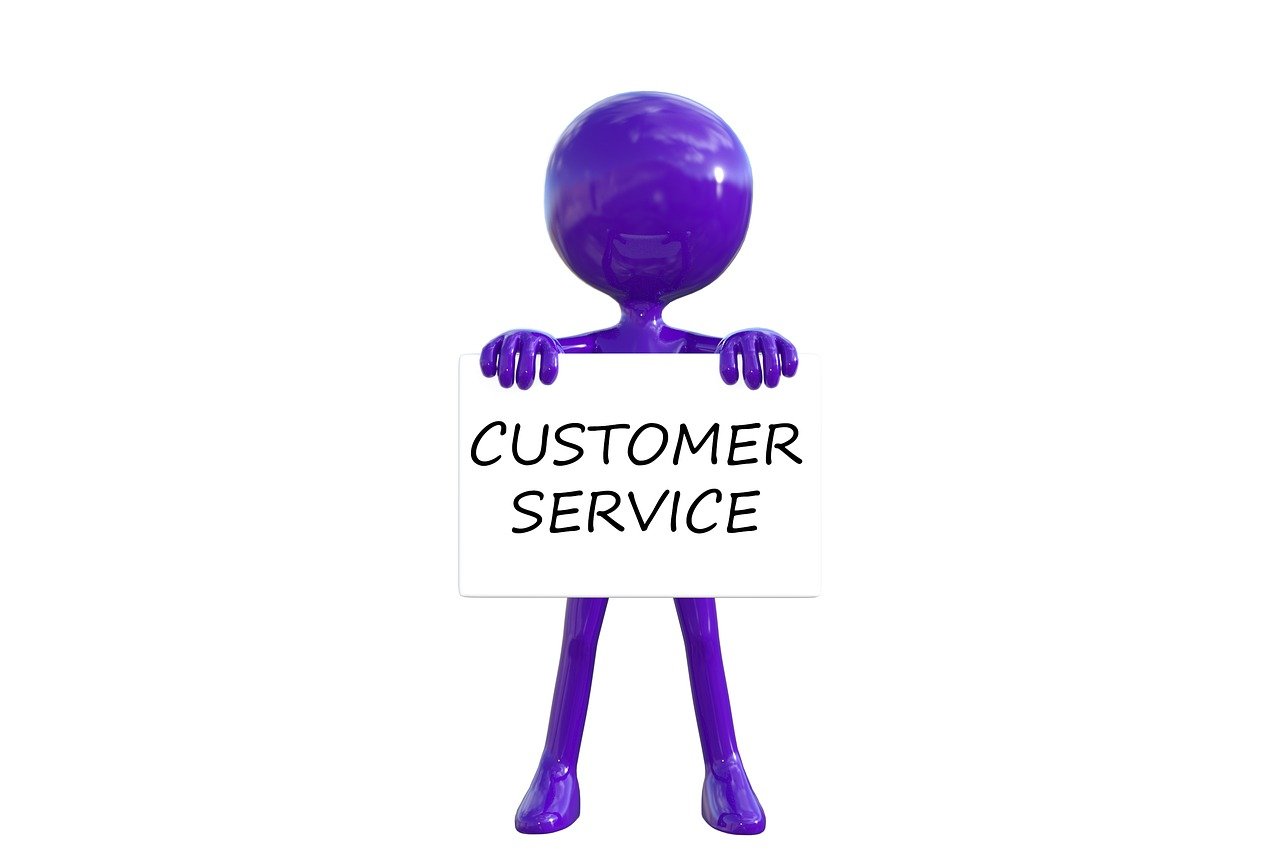Meeting Modern Demands with Customer-Centric Supply Chains

Supply chain dynamics have evolved rapidly. Businesses now face the challenge of meeting customer demands efficiently. A customer-centric supply chain approach has become crucial. Companies that focus on customer needs see significant benefits. Top supply chains achieve 13% higher growth and three times higher revenue contribution.
Customer-centric supply chains improve product availability, faster lead times, and enhanced customer service. JUSDA stands out as a leader in this field. JUSDA integrates deeply with customers, making the supply chain a core competitive advantage.
Understanding Customer-Centric Supply Chains
Definition and Importance
What is a Customer-Centric Supply Chain?
A customer-centric supply chain focuses on the experiences of customers in all operations. This approach aims to meet customer demands efficiently. Companies design these supply chains to prioritize customer satisfaction, loyalty, and profitability. The goal is to align every aspect of the supply chain with customer needs.
Why Customer-Centricity Matters in Modern Supply Chains
Customer-centricity matters because it enhances the overall customer experience. Modern supply chains must adapt quickly to changing customer demands. A customer-centric supply chain helps businesses react faster to market shifts. This approach also builds resilience, especially during uncertain times. Companies that adopt customer-centric strategies often see increased revenue growth and customer loyalty.
Key Components
Customer Feedback Integration
Customer feedback integration plays a crucial role in a customer-centric supply chain. Businesses collect and analyze customer feedback to improve products and services. This process ensures that customer needs are built into the supply chain structure. Regular feedback helps companies stay aligned with customer expectations.
Real-Time Data and Analytics
Real-time data and analytics are essential for a customer-centric supply chain. These tools provide insights into customer behavior and market trends. Companies use real-time data to make informed decisions quickly. Analytics help identify areas for improvement and optimize supply chain operations. Leveraging data-driven insights enhances the overall efficiency of the supply chain.
Flexible and Responsive Operations
Flexible and responsive operations define a customer-centric supply chain. Businesses must adapt to changing customer demands swiftly. Flexibility allows companies to offer tailored fulfillment options. Responsive operations ensure that supply chains can handle unexpected disruptions. This adaptability sets businesses apart in a competitive market.
Customer-Focused Supply Chain Strategies

Leveraging Technology
Role of AI and Machine Learning
Artificial Intelligence (AI) and Machine Learning (ML) play a crucial role in modern supply chains. These technologies enable businesses to predict customer demands accurately. AI analyzes vast amounts of data to identify patterns and trends. ML algorithms help optimize supply chain operations by automating decision-making processes. Companies can reduce lead times and improve product availability through predictive analytics. AI and ML also enhance supply chain management by providing real-time insights.
IoT and Real-Time Tracking
The Internet of Things (IoT) revolutionizes supply chain management. IoT devices provide real-time tracking of goods throughout the supply chain. Businesses gain visibility into every stage of the supply chain ecosystem. Real-time supply chain visibility helps companies respond quickly to disruptions. IoT ensures that products reach customers on time and in perfect condition. This technology also improves inventory management by providing accurate data on stock levels.
Enhancing Customer Experience
Personalized Services
Personalized services are essential for a customer-focused supply chain strategy. Companies tailor their offerings to meet individual customer needs. Personalized services enhance customer satisfaction and loyalty. Businesses can offer customized products and delivery options based on customer preferences. This approach differentiates companies from competitors and drives revenue growth. Personalized services also build strong relationships between businesses and customers.
Efficient Communication Channels
Efficient communication channels are vital for a customer-focused supply chain. Open communication between suppliers and customers ensures smooth supply chain operations. Companies use various channels to keep customers informed about order status and delivery times. Efficient communication reduces misunderstandings and enhances customer experience. Businesses can address customer concerns promptly through effective communication. This strategy helps maintain high levels of customer satisfaction and loyalty.
Case Studies
Success Story of JUSDA
JUSDA stands out as a leader in customer-centric supply chains. The company integrates deeply with customers to understand their needs. JUSDA leverages technology to optimize supply chain processes. The company uses AI and IoT to provide real-time tracking and predictive analytics. JUSDA's customer-focused supply chain strategy results in faster lead times and improved product availability. The company achieves higher revenue growth by aligning supply chain dynamics with customer demands.
Other Industry Examples
Other companies also excel in customer-focused supply chain strategies. For instance, Amazon uses AI and ML to predict customer demands and optimize inventory. The company offers personalized services through tailored product recommendations. Zara excels in flexible and responsive operations. The company adapts quickly to changing fashion trends and customer preferences. These industry examples highlight the importance of customer-centric supply chain strategies.
Challenges and Solutions in Customer-Centric Supply Chains

Common Obstacles
Resistance to Change
Many businesses face resistance when shifting to a customer-centric supply chain. Employees often feel comfortable with traditional methods. Change disrupts routines, causing anxiety. Managers must address these concerns. Training programs help employees understand the benefits of new approaches. Clear communication about the advantages of customer-centric strategies eases the transition. Companies that invest in change management see smoother implementations.
Data Privacy Concerns
Data privacy presents another significant challenge. Customer-centric supply chains rely heavily on data. Companies collect vast amounts of customer information. Protecting this data becomes crucial. Data breaches can damage trust and reputation. Businesses must comply with regulations like GDPR. Implementing robust cybersecurity measures ensures data protection. Regular audits and updates keep systems secure. Customers feel more confident when their data is safe.
Overcoming Challenges
Change Management Strategies
Effective change management strategies address resistance. Leaders play a key role in this process. They must champion the shift to a customer-centric approach. Engaging employees early in the process fosters buy-in. Training sessions equip staff with necessary skills. Regular feedback loops identify and address concerns. Celebrating small wins keeps momentum going. A structured approach to change management minimizes disruptions.
Ensuring Data Security
Ensuring data security requires a multi-faceted approach. Companies must invest in advanced cybersecurity technologies. Encryption protects sensitive customer information. Firewalls and anti-virus software prevent unauthorized access. Regular system updates patch vulnerabilities. Employee training on data handling practices reduces risks. Compliance with data protection regulations builds customer trust. A strong focus on data security safeguards both the company and its customers.
Future Outlook for Customer-Centric Supply Chains
Emerging Trends
Predictive Analytics
Predictive analytics will shape the future of customer-centric supply chains. Companies use data to forecast customer demands accurately. This approach helps businesses stay ahead of market trends. Predictive analytics reduce waste by optimizing inventory levels. Businesses can avoid stockouts and overstock situations. Real-time insights enable quick decision-making. Companies can respond faster to changes in customer behavior.
Sustainable Practices
Sustainability is becoming a key focus in supply chains. Customers prefer eco-friendly products and practices. Businesses must adopt sustainable methods to stay competitive. Reducing carbon footprints and waste is essential. Companies can use renewable energy sources. Sustainable packaging options appeal to environmentally conscious customers. Implementing green logistics practices enhances brand reputation. Sustainability drives long-term growth and customer loyalty.
Preparing for the Future
Continuous Improvement
Continuous improvement ensures supply chains remain efficient. Businesses must regularly assess their processes. Identifying areas for improvement is crucial. Companies should invest in employee training. Skilled employees contribute to better performance. Adopting new technologies can enhance operations. Regular feedback from customers helps refine strategies. Continuous improvement fosters innovation and resilience.
Adapting to Market Changes
Adapting to market changes is vital for success. Supply chains must be flexible and responsive. Businesses should monitor market trends closely. Quick adaptation to shifts in demand is necessary. Companies can use technology to gain real-time insights. Collaboration with suppliers ensures smooth operations. Open communication channels improve coordination. Adapting to changes helps maintain a competitive edge.
Survey Results:
71% of leading companies build supply chain strategies linked to customer value propositions.
50% of respondents mention moving to a customer-centric supply chain.
83% of supply chain leaders asked to improve the customer experience.
Customer-centric supply chains will continue to evolve. Embracing predictive analytics and sustainable practices is essential. Continuous improvement and adaptability ensure long-term success. Businesses that prioritize customer needs will thrive in the modern market.
Customer-centric supply chains have become essential for modern businesses. Companies that prioritize customer needs see significant benefits. A focus on customer satisfaction and loyalty drives revenue growth.
Staying competitive in today's market requires adaptability. Businesses must leverage technology and real-time data. Flexible operations ensure quick responses to market shifts.
Adopting customer-centric strategies is crucial. Companies should integrate customer feedback and enhance communication. Embracing these approaches will lead to long-term success. As Mark George from Accenture Strategy stated, "A customer-centric supply chain is essential to the well-being of companies and society as a whole."
See Also
Improving Supply Chain Efficiency Through Cloud-Based Technology
Addressing Global Supply Chain Growth Challenges Effectively
Managing Transformation: Embracing Technology in Supply Chains
Revolutionizing Supply Chain Management with Cloud Solutions
The Impact of Cloud-Based Supply Chain Solutions on Industries
